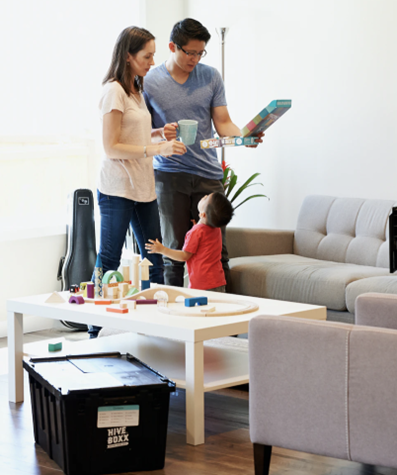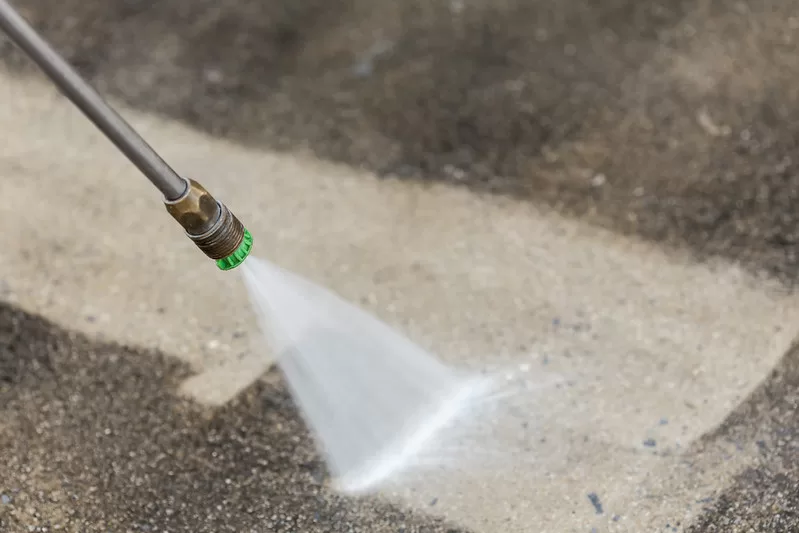Moving homes can be a stressful and daunting experience.
Whether it’s a short-distance or a long-distance move, the process of packing up your belongings, organizing your move, and settling into a new home can be overwhelming.
However, there are ways to reduce the stress and make the move more manageable.
One of the key ways to stress less when moving home is to plan ahead.

This means creating a timeline for your move, setting goals for each step of the process, and sticking to a schedule.
By breaking down the move into smaller, more manageable tasks, you can reduce the feeling of being overwhelmed and ensure that everything is completed on time.
Another tip to stress less when moving home is to declutter before you move.
This means getting rid of any items you no longer need or want, which can help you feel more organized and make the move less chaotic.
Additionally, decluttering can help you save time and money by reducing the amount of items you need to pack and transport to your new home.
- Understanding the Stress of Moving
- Planning Ahead
- Maintaining a Positive Mindset
- Taking Care of Your Health
- Post-Move Tips
Understanding the Stress of Moving
Moving to a new home is a major life event that can be both exciting and stressful.
While it’s natural to feel a mix of emotions during this time, it’s important to understand the sources of stress that often come with the process.
One of the main causes of stress when moving is the sheer amount of work involved.
From packing up belongings to coordinating with movers, there are many tasks to manage, and it can be overwhelming to keep track of everything.
In addition to the logistical challenges, moving can also bring up emotional stressors.
Leaving behind familiar surroundings and routines can be difficult, and adjusting to a new home and community can take time.
Another source of stress when moving is financial concerns.
Moving can be expensive, and unexpected costs can add up quickly. This can lead to worry and anxiety about finances, which can further exacerbate stress levels.
By understanding the sources of stress that come with moving, individuals can better prepare themselves for the challenges ahead.
With the right strategies and support, it’s possible to minimize stress and make the transition to a new home as smooth as possible.
Planning Ahead
Planning ahead is an essential step for anyone moving to a new home.
It can help reduce stress and ensure that everything goes smoothly on the moving day.
Here are some tips to help plan ahead:
Create a moving checklist:
A moving checklist can help keep track of everything that needs to be done before, during, and after the move. It can include tasks such as notifying utility companies, changing the address, packing, and hiring a moving company.
Set a budget:
Moving can be expensive, and setting a budget can help avoid overspending.
It can include expenses such as hiring a moving company, buying packing supplies, and travel costs.
Hire a reputable moving company:
Hiring a reputable moving company can help ensure that the move goes smoothly.
It is essential to research and compare different moving companies before making a final decision.
Pack early:
Packing can be a time-consuming task, and it is essential to start early.
It can help reduce stress and ensure that everything is packed correctly.
Label boxes:
Labeling boxes can help keep track of what is inside each box and make unpacking easier.
It can include information such as the room it belongs to, the contents, and whether it is fragile.
By following these tips, anyone can plan ahead and reduce stress when moving to a new home.
Maintaining a Positive Mindset
Moving home can be a stressful experience, but it doesn’t have to be.
Maintaining a positive mindset throughout the process can make all the difference.
Here are a few tips to help you stay positive and stress less during your move:
Focus on the positives:
Moving home can be an exciting new chapter in your life. Instead of focusing on the things you’ll miss about your old home, try to focus on the positives of your new home and all the new opportunities it will bring.
Stay organized:
Staying organized can help reduce stress and anxiety during your move. Make a list of everything that needs to be done and create a timeline to help you stay on track. This will help you feel more in control and less overwhelmed.
Take breaks:
Moving can be exhausting, both physically and mentally. Make sure to take breaks throughout the day to rest and recharge. This will help you stay energized and motivated throughout the process.
Practice self-care:
Moving can be a busy and stressful time, but it’s important to take care of yourself too.
Make sure to eat well, exercise, and get enough sleep. This will help you stay healthy and feel more positive throughout the process.
By maintaining a positive mindset, staying organized, taking breaks, and practicing self-care, you can stress less and enjoy the process of moving to your new home.
Taking Care of Your Health
Moving to a new home can be a stressful experience, and it’s important to take care of your health during this time. Here are a few tips to help you stay healthy and stress-free:
Stay hydrated:
Drinking plenty of water is essential for staying healthy and reducing stress. Make sure to drink at least eight glasses of water per day, and carry a water bottle with you when you’re on the go.
Eat well:
Eating a balanced diet is important for maintaining your energy levels and reducing stress. Make sure to eat plenty of fruits, vegetables, lean proteins, and whole grains.
Get enough sleep:
Getting enough sleep is essential for reducing stress and staying healthy. Make sure to get at least seven to eight hours of sleep per night, and try to establish a regular sleep schedule.
Take breaks:
Moving can be physically and mentally exhausting, so it’s important to take breaks throughout the day.
Take a short walk, do some stretching exercises, or take a few deep breaths to help reduce stress.
Practice self-care:
Taking care of yourself is essential for reducing stress and staying healthy.
Take time to do things you enjoy, such as reading a book, taking a bath, or listening to music.
By following these tips, you can take care of your health and reduce stress during the moving process.
Post-Move Tips
After the move, there are a few things that can be done to make the transition smoother and less stressful.
Read Also :
Here are some post-move tips to consider:
Unpack essentials first:
When unpacking, it’s important to prioritize and unpack essentials first. This includes items such as bedding, toiletries, and kitchen supplies. This will help make the new home feel more comfortable and functional right away.
Take breaks:
Moving can be exhausting, so it’s important to take breaks and rest when needed. This can help prevent burnout and keep stress levels in check.
Explore the new neighborhood:
Exploring the new neighborhood can be a fun way to get familiar with the area and reduce stress. Take a walk, visit local shops, or try out a new restaurant.
Get organized:
Taking the time to get organized in the new home can help reduce stress and make the space feel more comfortable. This includes setting up a system for mail, creating a designated workspace, and decluttering unnecessary items.
Meet the neighbors:
Meeting the neighbors can be a great way to feel more connected to the community and reduce stress. Consider introducing yourself and attending local events or gatherings.
By following these post-move tips, individuals can help reduce stress and make the transition to a new home smoother and more enjoyable.









